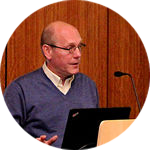Search Results


Jan 27, 2025, 1:45 PM
Final grant report.

Jan 7, 2025, 11:49 AM
Initial update on grant.


Nov 18, 2024, 11:36 AM
Behind the scenes at the Tapscott Lab at the Fred Hutchinson Cancer Center in Seattle.

Nov 2, 2024, 9:50 AM
The mid-year progress report for Dr. Stephen Tapscott’s project.

Jun 27, 2024, 12:40 PM
Findings indicate selective interactions of RNA binding proteins with HSATII RNA, which may impact mRNA processing pathways
downstream of DUX4 expression; and that HSATII RNA structure dictates protein recruitment.


Jan 30, 2024, 5:09 PM
Dr. Arends provides an update to current work.

Jul 5, 2023, 11:53 AM
Initial progress update.

May 13, 2022, 11:54 PM
Final report from Dr. Tapscott on his multi-year grant program.


Jun 4, 2021, 10:33 AM
Dr. Tapscott provides an update to his multi-year grant.

May 28, 2021, 11:09 AM
Dr. Hamm provides a final report on work performed during her Friends of FSH Research Fellowship.

Mar 16, 2021, 2:16 PM
Dr. Hamm provides an update on the molecular mechanisms that occur in FSHD.

Nov 21, 2020, 9:52 AM
Dr. Tapscott and provides an update on his multi-year grant.

May 20, 2020, 3:24 PM
Dr. Tapscott provides an update on his multi-year grant.

Nov 24, 2019, 7:35 PM
The funding provided by Friends of FSH Research and the Carrino Foundation has supported Dr. Amy Campbell, a dedicated professional highly skilled in FSHD research who oversees the completion of high-impact studies on FSHD and provides scientific and technical oversight for graduate students, postdoctoral fellows, and collaborators seeking to initiate and/or advance projects in FSHD.

Nov 5, 2019, 3:02 PM
A discussion on recent research advances at the Hyatt prior to the Annual Auction: Rainier Room @ 1-4pm. RSVP. Agenda posted here as well.


Jul 18, 2019, 8:43 PM
DUX4 suppresses MHC Class I to promote cancer immune evasion and resistance to checkpoint blockade.

May 29, 2019, 8:16 AM
The funding provided by Friends of FSH Research and the Carrino Foundation has supported Dr. Amy Campbell, a dedicated professional highly skilled in FSHD research who oversees the completion of high-impact studies on FSHD and provides scientific and technical oversight for graduate students, postdoctoral fellows, and collaborators seeking to initiate and/or advance projects in FSHD.

May 30, 2018, 10:18 AM
Exciting new research being funded both by your investments and through our co-funding partners.

Feb 1, 2018, 9:51 PM
Slide decks for Dr. Tapscott & Dr. Wang from the 27-Jan presentations.

Dec 22, 2016, 12:28 PM
Updates and round-table discussion on FSHD on the morning of the January Auction.

Feb 4, 2015, 2:06 PM
The Tapscott lab is entering the final year of a four-year grant. Let's see how they are doing.

Jun 3, 2014, 9:35 PM
Today the University of Washington announced that it received four years of funding for a Paul D. Wellstone Muscular Dystrophy Cooperative Research Center from the National Institute of Arthritis and Musculoskeletal and Skin Diseases (NIAMS), a branch of the National Institutes of Health (NIH).

Jan 13, 2014, 10:09 AM

Feb 6, 2013, 3:34 PM
Using model organisms to identify new therapies and to understand the pathogenesis of FSHD.

Oct 22, 2012, 12:55 PM
The milestones for year one were to perform an initial screen for Platform 1 and prepare and validate Platform 2.

Jun 1, 2012, 11:54 AM
Analysis of the hundreds of genes regulated by the DUX4 transcription factor reveals a new understanding of the pathology of FSHD and may lead to tools that accelerate the development of therapies.

Dec 28, 2011, 9:54 AM
DUX4 Activates Germline Genes, Retroelements, and Immune Mediators: Implications for Facioscapulohumeral Dystrophy.

Nov 27, 2011, 9:27 AM

Oct 29, 2010, 4:14 PM
An international research consortium shows that FSHD muscle nuclei are poised for expression of the toxic DUX4 protein.

Sep 20, 2010, 3:52 PM
An international research collaboration that includes research groups funded by the Friends of FSH Research has made a critical advance in determining the cause of FSHD.

Sep 20, 2010, 3:45 PM
An international collaboration identifies a region of DNA necessary for FSHD and focuses attention on DUX4 as the cause of muscle deterioration.

Sep 16, 2010, 3:08 PM
This brought together the various labs which have been collaborating in an effort to push ahead on FSH research through an open exchange of unpublished research.

Jun 26, 2010, 2:46 PM
Five-year NIH grant to a consortium of FSHD research labs.

Jan 23, 2010, 2:10 PM
Drs Tapscott and Miller aim to use this grant to finalize the preliminary studies and applications to NIH for funding an international cooperative study on FSHD.

Aug 1, 2009, 2:03 PM
FSHD research continues to move forward with the generous help from the Friends of FSH Research. Dr Dan Miller at the University of Washington’s Institute for Stem Cell and Regenerative Medicine, and Dr. Stephen Tapscott at the Fred Hutchinson Cancer Research Center think that one possible cause of muscle weakness in FSHD is a defect in the generation of muscle tissue that may start before birth, and persist as muscles are continually modified and repaired throughout life.

Jun 1, 2009, 1:27 PM
Several genes have been examined as candidates for causing FSHD, including the DUX4 homeobox gene in the D4Z4 repeat, but none have been definitively shown to cause the disease, or has the full extent of transcripts from the D4Z4 region been carefully characterized.

Jun 1, 2009, 1:02 PM
Research on the cause and treatment of facioscapulohumeral muscular dystrophy (FSHD) might be entering a new, and hopefully better, era. For many years FSHD has been a difficult disease for medical researchers to study. In most genetic diseases, a gene with some known function is mutated and no longer performs its normal biological role. To find a treatment for such a disease, the medical researcher needs to identify therapeutic interventions that will compensate for the mutant gene.

Aug 8, 2008, 12:37 PM
Dr. Tapscott aims to use this grant to identify the potential mechanisms that cause FSHD, identifying the molecular changes that result from the FSHD mutation.

Apr 15, 2008, 11:46 AM
$6.3 Million Dollar Grant for FSH Research — The Pathogenesis of FSHD.





Connect with us on social media